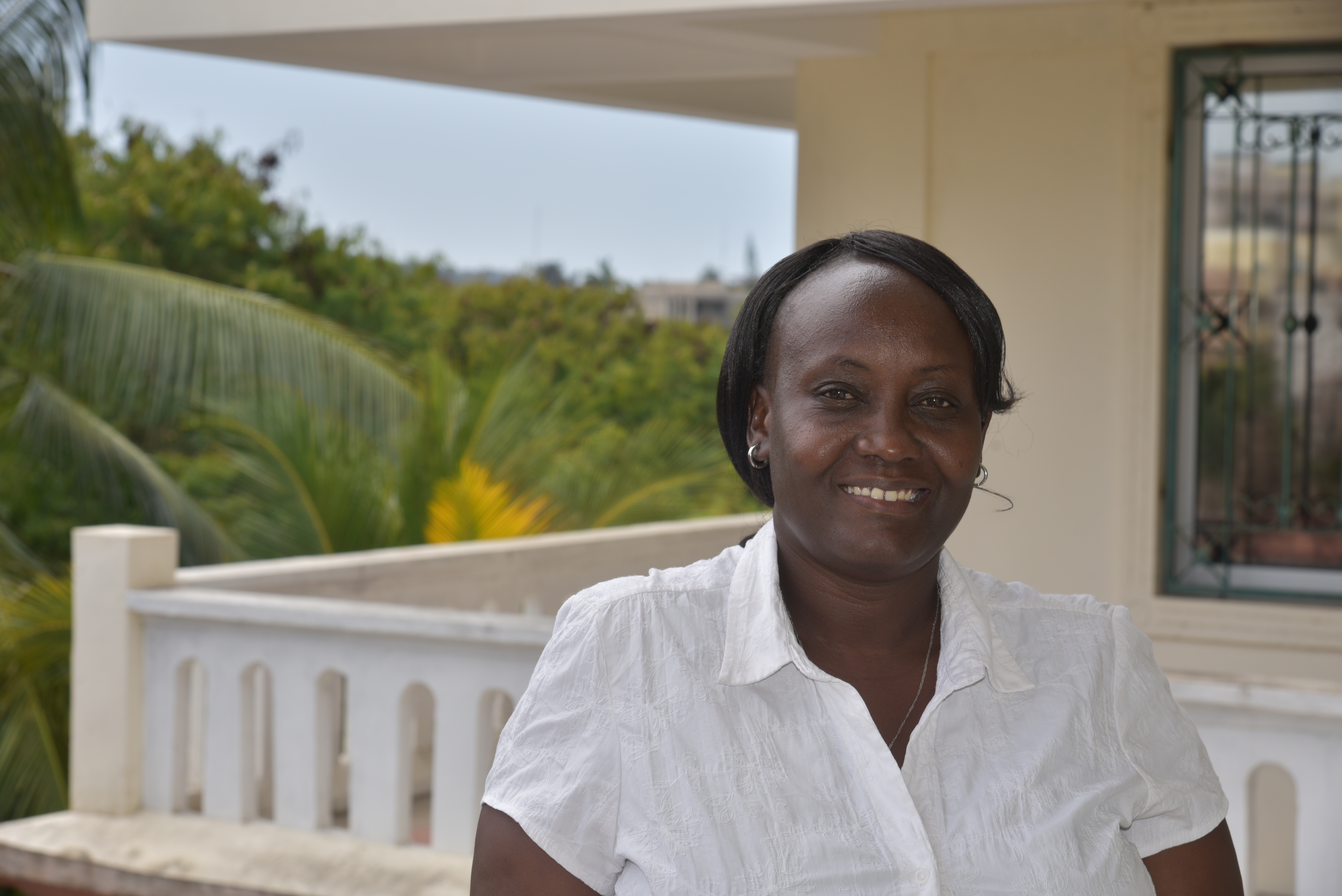In the words of Topister Juma: “... I do not follow people into their homes – they come to me for help and I become the target.”
Topister Juma has been fearlessly defending human rights for over 12 years in the coastal region of Kenya. As a field officer for Muslims for Human Rights (MUHURI), Topister specializes in cases of gender-based violence (GBV) and women affected by violent extremism. As she deals with painfully sensitive cases of abuse, her own safety is threatened, becoming a target simply for seeking justice.Date:

![]() I come across a lot of issues in this job. One of them is threats, I’ve been attacked several times. My work makes me an enemy to some perpetrators of GBV. We need CCTV in the office and an alarm button for emergencies. Sometimes I do not give out my name for my own protection. It is demoralizing because this work is already a rescue job. I do not follow people into their homes – they come to me for help and I become the target. I remember during one case I was forced to move [my family] to a new location for our safety. A typical accusation is that I want to break up the marriage! People come to my office and ask why I am interfering with the family and sometimes it is not even one of my [assigned] cases.
I come across a lot of issues in this job. One of them is threats, I’ve been attacked several times. My work makes me an enemy to some perpetrators of GBV. We need CCTV in the office and an alarm button for emergencies. Sometimes I do not give out my name for my own protection. It is demoralizing because this work is already a rescue job. I do not follow people into their homes – they come to me for help and I become the target. I remember during one case I was forced to move [my family] to a new location for our safety. A typical accusation is that I want to break up the marriage! People come to my office and ask why I am interfering with the family and sometimes it is not even one of my [assigned] cases.
[During another case] I was told someone was looking for me at the office. Luckily my colleagues had not given my details, so I took a tuk-tuk and left immediately for home. Later that evening my children alerted me to a crowd outside our house. What I did not know was that my house was in fact burning. I have started a new life now but as to what caused the fire? The services told me that they did not know. Up to this point I still have no answers.
At MUHURI, we take on GBV cases and agree an approach with the survivor. But after a few days the survivor is persuaded to resolve the issue outside of court. In the situation I am left hanging, I do not no know what to do next – should I try to take this case through the courts, or should l also forget about the case? When [GVB cases] come to me, I advise on how to report. First, they must report the issue to the police to receive a [reference number]. Then they must go to the hospital to receive treatment, then we sit and discuss, and I ask, “are you ready for this fight? Are you ready to push this case to court?”
There is a problem in this country with rescue shelters [for GBV survivors and women affected by VE]. There are not enough spaces to allow women to recover. We do not have specialist GBV shelters in Kenya. We have a gender-based violence recovery centre (GVRC) in Nairobi Women’s Hospital and we have a new GVRC within the Coast Provincial Hospital in Mombasa but after treatment there is no dedicated shelter where women can go.
I want to see cases through to the end and be able to say, “I have assisted this person.” Of course, I can’t make everyone happy, but I want to help those people who have problems. In a day we might have 20 cases listed, that is 20 problems you have in your head, you take them home. I grew up with my mum when I lost my dad to cancer. My mum did not go to school and I saw what she went through. The family did not respect my mother, she went through a lot of challenges and no one was there to give her support. I think I get my passion from witnessing this struggle and I want to help women who do not have a voice."